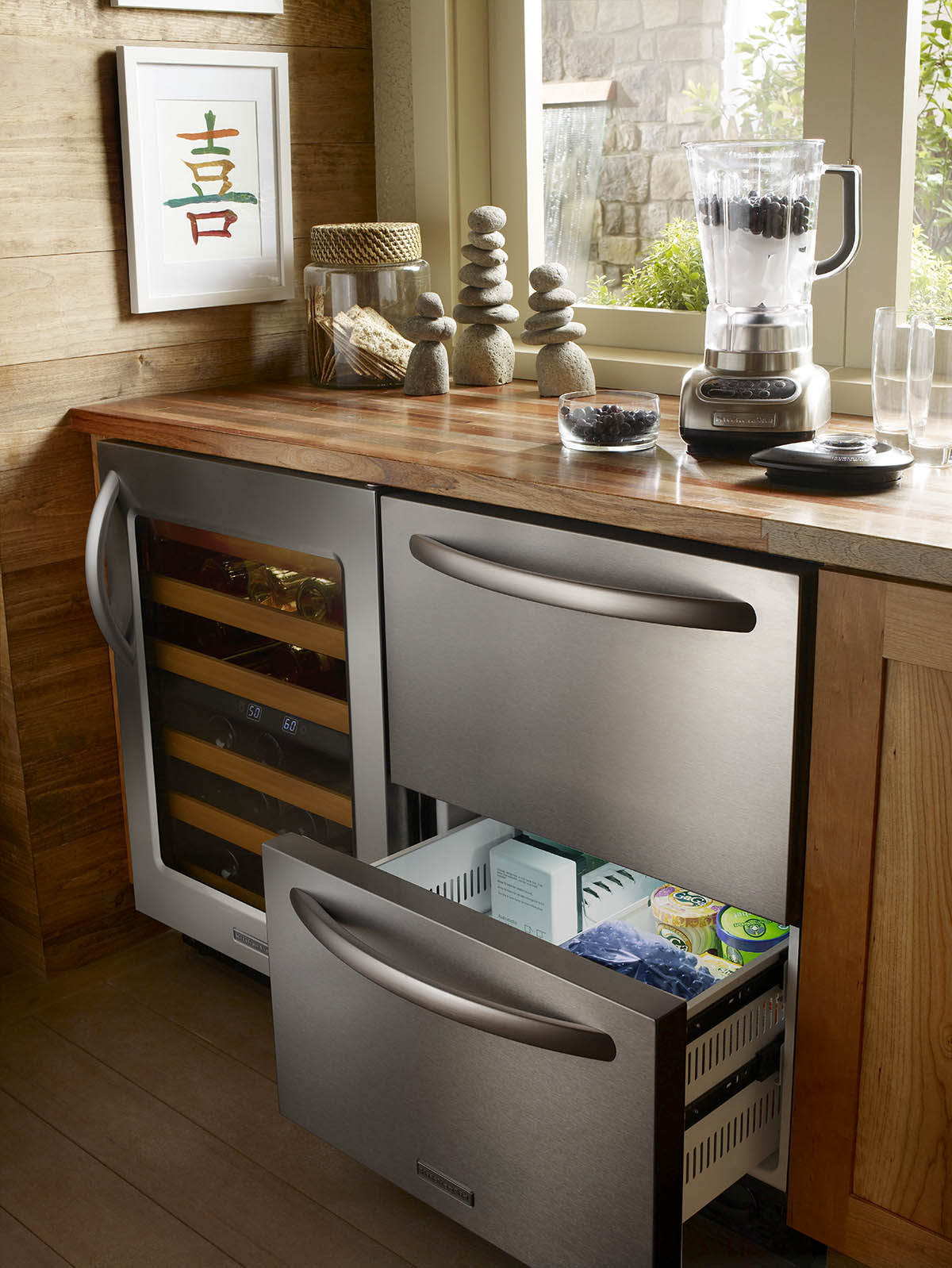WRITER | PATTI EDDINGTON
During the pandemic, homeowners did more than experiment with sourdough bread starters and share quarantinis over Zoom; they continued to leap into home renovation projects with a vengeance.
Sprucing up our abodes is a time-honored favorite pastime for Americans. According to a recent US Census Bureau housing study, we spent $522 billion on home improvement between 2017 and 2019, an increase of $72 billion over the two previous years. And we don’t seem to be slowing down.
This urge to beautify and upgrade might seem surprising considering how many of us — on both the homeowner and the building contractor sides — have survival tales to tell.
Ann Arbor residents Chris and Linda Bidlack are 31-year veterans of the home reno trenches, and they have the figurative battle scars and the humorous tales to prove it. The couple, owners of the marketing/graphic design firm Bidlack Creative Group, were married on August 10, 1991, and moved to their 1960s tri-level “permanent fixer-upper” two weeks later. They’ve been remodeling ever since.
“When we moved into our house, it was the saddest home on the block. Vines growing into volunteer trees, dilapidated fence ready to fall over, sagging roof, leaky windows, no insulation — and that was just the outside,” Linda says. “For our first project, we tore down our fence. Complete strangers stopped by to thank us for doing it.”
Every decade since, the couple has undertaken major home projects, from the complete renovation of landscaping to remodeling the kitchen and main bathroom, installing new siding, roof and windows, rebuilding a porch, and laying down a new concrete driveway, sidewalks, and patio. They’ve also been forced to undertake numerous less-than-sexy projects like adding electrical service to the garage, removing woodchucks from under the house, and replacing the sewer line. That sewer line project started with a “strong smell of swamp” wafting through the vent system. It ended after several stinky weeks when they discovered the 55-year-old drainpipe under the kitchen had been sealed with plastic sheeting all those years ago and was being held together by clay soil. Their home ultimately got new piping, a new staircase, and flooring, and the Bidlacks got one more renovation story.
Despite some of the frustrations that can come with remodeling, Linda says they’ve never regretted tackling the improvements.
“The projects we took on improved our home and our lives,” she says.
That sort of optimism and practicality and the understanding that home renovation might never be easy but is usually worth it is something building contractors love to find in their clients, says Andy Stroup, owner of West Michigan-based Andy Stroup Construction. He advises getting recommendations from friends who have actually worked with the contractor for the best results and the smoothest process rather than relying on social media for referrals.
It’s probably not surprising that kitchen renovation is by far the most stressful, and Stroup encourages his clients to move out if at all possible.
“Once a contractor has taken out your kitchen sink, you come to realize how much you truly rely on it. Simple things become very difficult, and takeout food only goes so far,” he says. “During a kitchen remodel, I try to prepare the client for the chaos and complete lifestyle disruption. Solid surface countertops, for example, must be templated and put through production, which often takes several weeks even in the best-case scenario.”
Tips To Make It Through
The Bidlacks agree that moving out during certain projects — in particular, wall removal and extensive drywall installation — is ideal. When it’s not possible, they advise moving all people and pets to live on a floor farthest from the project. They also suggest trying to schedule major kitchen jobs for the summer, when grilling and picnicking outside is possible. The noise from roofing and siding can be deafening, so it’s a good idea to try to vacate your home during normal working hours, they add.
Stroup says many of the difficulties that come with taking on home renovations can be avoided with good planning and excellent communication.
“During the initial interview, ask the contractor how this project lines up with his or her typical projects, to get a feel for how experienced the contractor is with jobs like yours,” he says. “Also, ask the contractor if they use a foreman for the project, who will oversee the remodel. Further, ask how the contractor typically communicates. Texts and emails give the best paper trail to refer to in the event of a misunderstanding.”
And, finally, keep your sense of humor. You are bound to encounter something unexpected.








